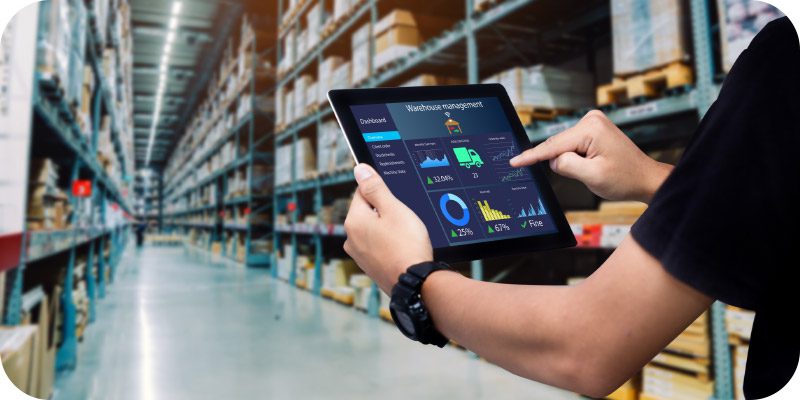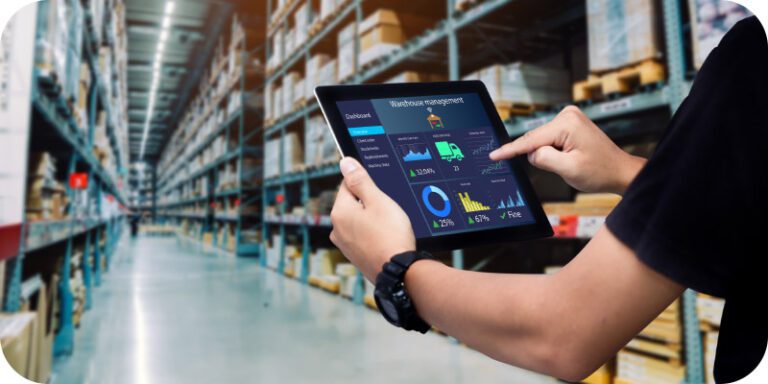Safeguarding Your Cargo from Digital Threats in 2023 and Beyond


As part of Solutions Review’s Contributed Content Series—a collection of articles written by industry thought leaders in maturing software categories—David L. Buss, the CEO of DB Schenker North America, explains how companies can protect their cargo from digital threats.
In an interconnected world where digital threats loom large, cargo transportation has become a high-stakes chess game. As we navigate through the rest of 2023, the logistics industry faces escalating cyber-attacks, with ships, trucks, and planes becoming lucrative targets for cyber-criminals seeking to disrupt our global economy.
While the COVID-19 pandemic amplified these vulnerabilities, the truth is that these threats have been a growing concern for years. The volume of data and systems involved in global logistics means there’s an ever-increasing number of entry points for hackers, making cargo transportation one of the most vulnerable sectors. It’s now clear that a reactive approach to cybersecurity won’t be enough. Companies must develop tailored, innovative solutions that keep their cargo safe from digital threats now and for years.
What Makes Cargo a Target for Cyber-Attacks?
The logistics industry forms a crucial backbone of global commerce. Countless shipments are transported daily across oceans, skies, and highways. Each presents an opportunity for cyber-criminals to disrupt operations, steal valuable goods, or demand ransoms for hijacked information.
The sheer complexity and scale of logistics networks make them vulnerable. With multiple touchpoints, from suppliers and transporters to warehouses and buyers, numerous potential weak spots can be exploited. This is further complicated by the growing trend towards digitization and automation in the sector.
While these advancements have brought efficiency and speed, they have also opened new avenues for cyber-attacks. The ongoing aftermath of the COVID-19 pandemic has also put additional strain on an already vulnerable sector. Many companies rushed to digitize their operations without adequate security measures, exposing them to opportunistic hackers. Given these factors, it’s clear why cargo is at risk and why businesses must prioritize cybersecurity in their logistics operations.
How to Ensure Your Cargo is Protected from Digital Threats
Ensuring the security of your cargo against digital threats necessitates taking a proactive and comprehensive approach. By embracing this mindset, you can protect your cargo from start to finish while still safely using effective intermodal shipping solutions. Below are a few noteworthy strategies that can assist you in achieving this goal:
Regular Risk Assessments
Risk assessments form the foundation of any robust cybersecurity strategy. These assessments involve thoroughly analyzing your logistics network to identify potential vulnerabilities cyber-criminals could exploit. The process includes evaluating your current security measures, identifying gaps, and understanding the potential impact of cyber-attacks.
Regular risk assessments help you stay one step ahead of cyber threats and make informed decisions about where to allocate resources for security enhancements. By proactively addressing weak spots, you can significantly reduce the risk of a successful cyber-attack, thereby ensuring the safety of your cargo.
Employee Training
The role employees play in defending against cyber threats is crucial. Yet, inadequate training can render them susceptible as the weakest link in your cybersecurity efforts. By implementing regular training sessions, you empower your team with indispensable knowledge to readily recognize and counter various cyber threats. To effectively safeguard against security breaches, it is crucial to provide comprehensive training sessions covering critical topics like identifying phishing emails, employing robust passwords, and reporting suspicious activity.
Equally important is the importance of abiding by the organization’s security policies and procedures. By cultivating a culture of awareness and accountability towards cybersecurity, the potential for human error resulting in a breach can be significantly mitigated.
Secure Access Control
Controlling who has access to what information within your network is a critical component of your cybersecurity strategy. Implementing strict access controls involves defining user roles and permissions based on job requirements. This helps ensure that employees only have access to the information necessary to perform their jobs, reducing the risk of internal breaches.
Regular audits of user access rights can help you identify any unnecessary permissions or inactive accounts that should be deactivated. Furthermore, implementing multi-factor authentication can provide an additional layer of security, making it more difficult for cyber-criminals to gain unauthorized access to your system.
Data Encryption
The utilization of data encryption serves as a powerful weapon in securing confidential data against unauthorized access. This technology effectively converts your sensitive information into an unusable format, making it accessible only by using a designated decryption key. Ensuring the encryption of sensitive data during transmission is essential to guard against its misuse if intercepted by cyber-criminals. This becomes increasingly critical when managing valuable cargo information that holds great value for hackers.
Additionally, consider using encrypted storage solutions for sensitive data. This provides an extra layer of protection, securing your information even if your physical storage devices or systems are compromised.
Regular Software Updates
Software updates serve a greater purpose than merely providing the latest features. They have played a crucial role in addressing security vulnerabilities since the previous update. It is important to note that cyber-criminals are constantly looking for these weaknesses, making outdated software an attractive target for exploitation. To safeguard your systems against hackers, regularly updating your software is of utmost importance. This includes operating systems, apps, and logistics management tools. Enabling automatic updates wherever feasible ensures your software remains up-to-date and fortified with the latest security enhancements.
Backup and Recovery Plan
Irrespective of the strength of your cybersecurity protocols, it remains a possibility that a cyber-attack could potentially bypass them. In these circumstances, it becomes vital to have a dependable backup and recovery plan ready to be implemented immediately. Your backup strategy should incorporate routine, automated backups of important information, which should be securely stored in a separate location. Moreover, conducting periodic tests on your recovery process is crucial to guarantee the successful restoration of your data in an emergency.
Having a well-implemented backup and recovery plan in place is crucial when dealing with a cyber-attack. It can make all the difference in ensuring that any disruption to your cargo operations is kept to a minimum rather than becoming a major catastrophe.
Partner with Cybersecurity Experts
Navigating the intricate cybersecurity landscape is no small feat, as it demands continuous awareness of emerging threats and recommended mitigation strategies. Establishing partnerships with experienced experts in this field can significantly benefit your organization.
When it comes to ensuring the security of your cargo operations, there are a couple of options worth considering. One option is hiring a dedicated cybersecurity team with the necessary expertise and skills. You can also hire a reliable third-party provider to handle this task. Both options can help create a customized cybersecurity plan that fits your needs. They can also perform frequent risk evaluations, quickly address any security incidents, and keep you updated on the latest trends and risks to prepare for.
Take Proactive Measures to Protect Your Cargo
Proactivity is vital when it comes to protecting your cargo from the threat of cyber-attacks. Taking proactive measures such as providing employee training, implementing secure access control and data encryption protocols, regularly updating software, having a reliable backup and recovery plan in place, and partnering with experienced cybersecurity experts can all help you safeguard against potential breaches. By putting these protective measures into practice today, you can ensure that your cargo operations remain safe for years to come.






















